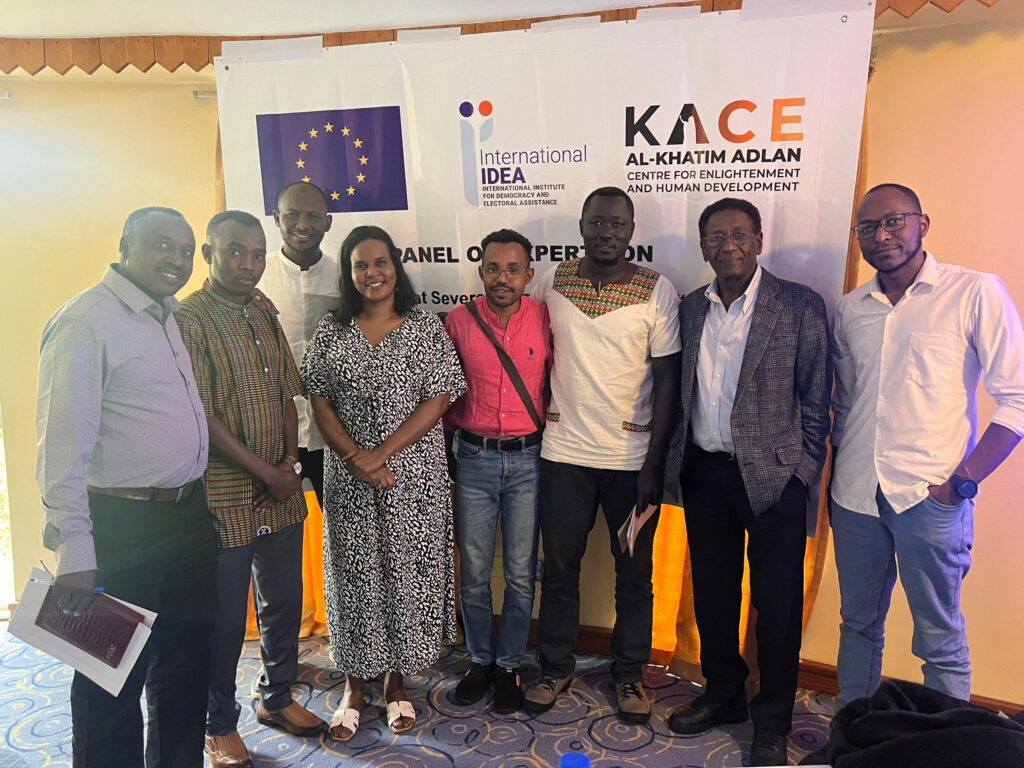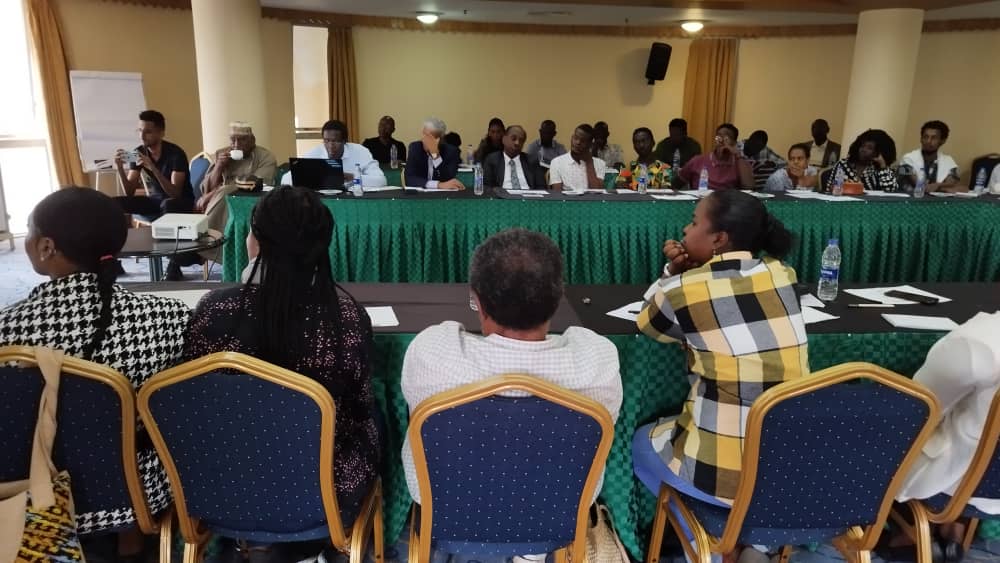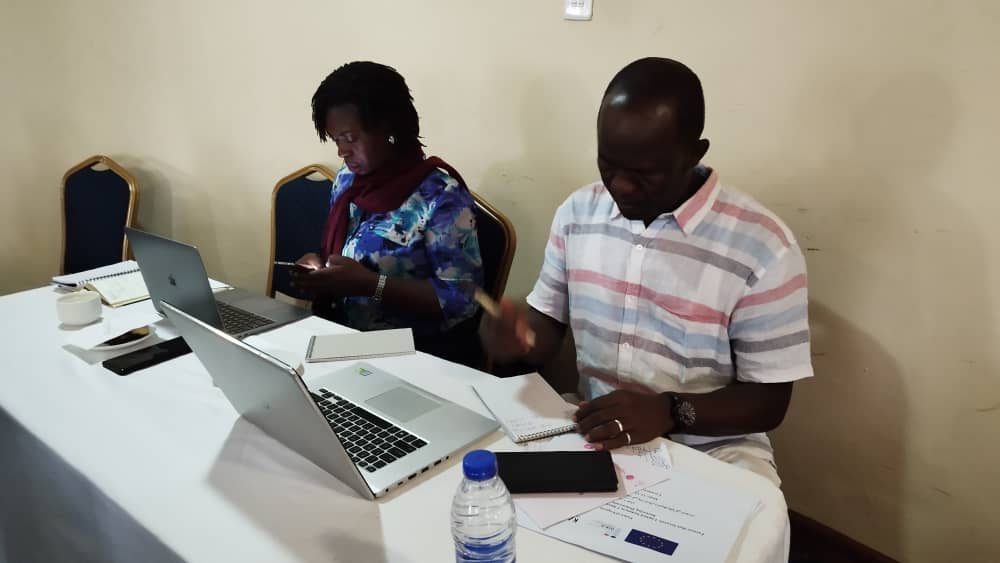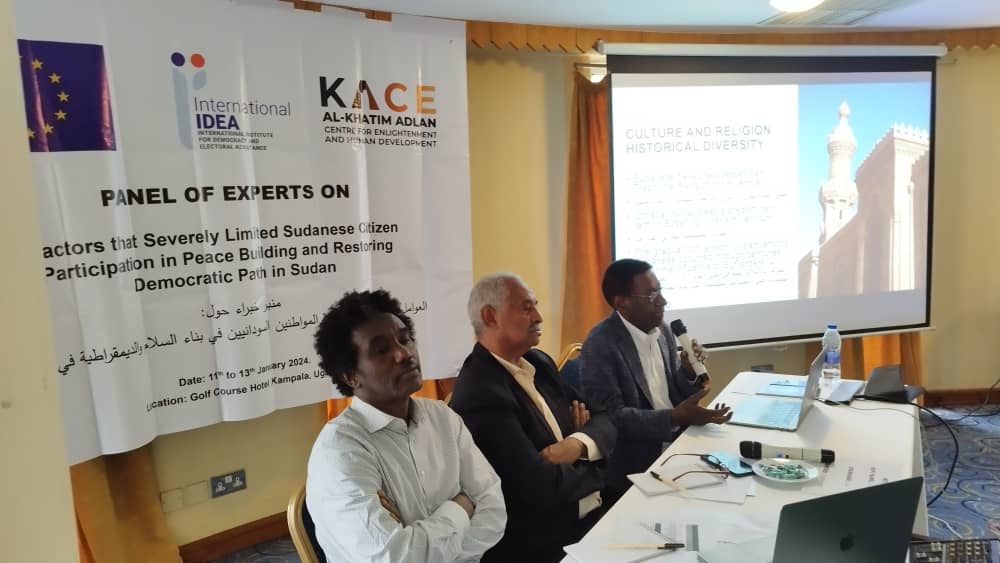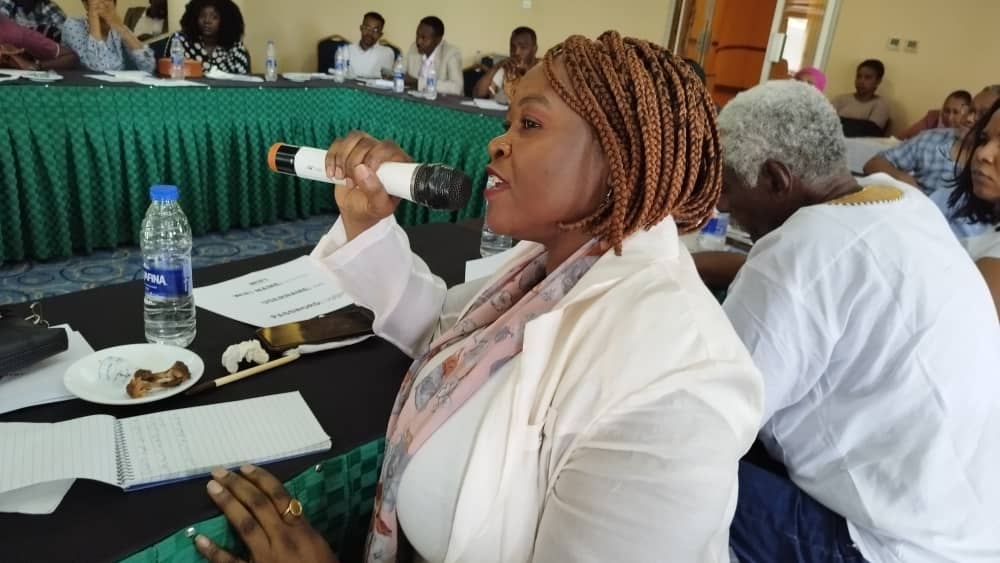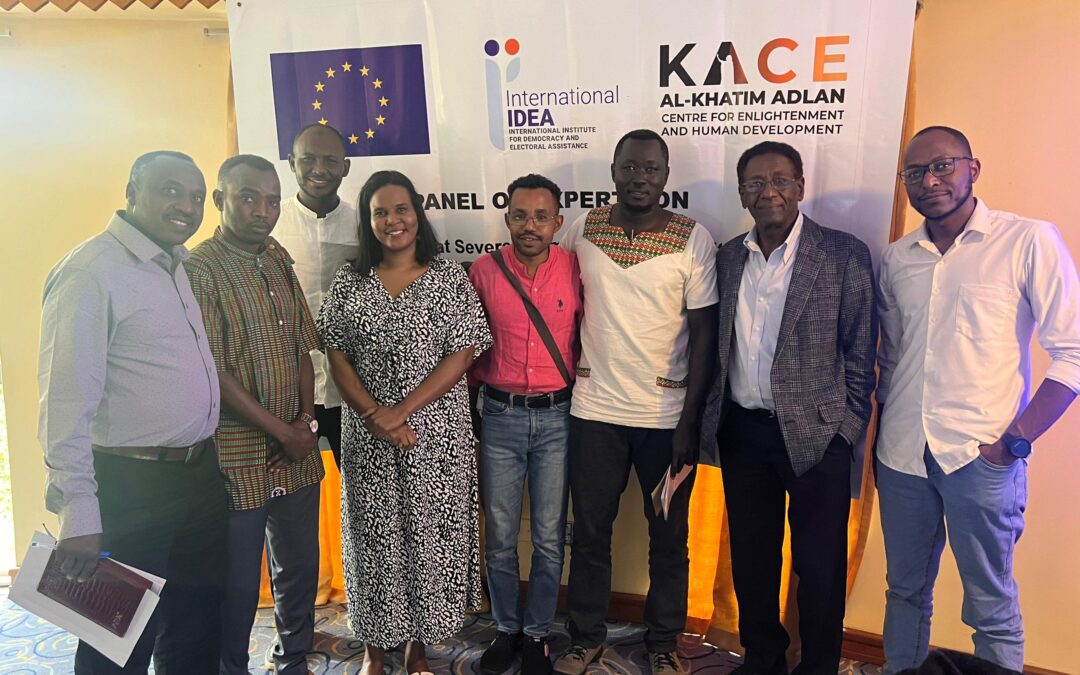1. Objectives:
- Assess the major challenges facing Sudanese political participation since independence by identifying the factors that influenced and weakened political parties and civil society, including social movements, unions, professional associations, and others.
- Provide options and recommendations to promote the democratic participation of citizens in building peace, ending the war, and restoring the democratic path of Sudan.
The initiative:
- The workshop, organized by the Al-Khatim Adlan Center for Enlightenment and Human Development in cooperation with the International Institute for Democracy and Electoral Assistance (IDEA), was held under the slogan: (A group of experts… on the factors that hindered the participation of Sudanese citizens in building peace and democracy in their country), during the period from 11/12 /January 13, 2024, In a hotel Golf course in the Ugandan capital, Kampala. In the presence of 14 experts and 27 participants.
3. Planning and preparation stage:
- A preparatory meeting was held between the Al Khatim Adlan Center for Enlightenment team and the participating experts to unify the vision and concepts and ensure the completion of the preparation of the working papers in accordance with what was agreed upon. Distribution of the agenda and timetable and distribution of roles between lecturers, discussants, session managers, and participants. (Agenda attached)
- The level, number, and type of participants invited from among the targeted youth were determined, as the workshop has an educational and awareness-raising goal, as experts provide information and analysis that help youth enrich the discussion. The diversity of the invitees was taken into account in terms of their institutional affiliations, cultural and geographical backgrounds, and their gender, male and female. The best methods of communicating with the participants were also determined (email, WhatsApp, phone, speech), and the total number of participants was 28 to manage a good discussion.
- Choose a place: (The Golf Course Hotel) was chosen as a location for the activity after comparing it with three other places for several considerations, including the quality of ventilation and lighting for the rooms and halls, that the hall be quiet and far from noise, that the space be suitable for the number of attendees, easy access to it, and providing the necessary tools for discussion: a sound system, A display screen, and the provision of facilitating staff in the event of any technological problems; In addition to providing a strong internet package to operate transportation via Al-Khatem, they adjusted the center’s Facebook page, and set up a link to the Zoom or Google Meet Online sessions, in addition to the prices provided by the hotel.
4. Expert platform panel of experts:
An effective means of exchanging ideas, discussing the topics and issues raised, and producing valuable results and recommendations, in addition to being an effective mechanism for disseminating and collecting data and information. The training was mainly facilitated by a selected group of specialized intellectual experts with scientific backgrounds and professional experience. The total number of experts participating in the table was (14) experts, (7) of whom were writers on basic research topics, while (7) of the other experts were main discussants of topics and issues. In addition to appointing a number of (2) experts, namely Mr. Hajj Warraq. And the honorable Professor Al-Jamil for chairing the sessions, distributing opportunities to everyone, and ensuring that the discussions are always within the goals of the session. It is worth noting that the meeting (committee of experts) that preceded the workshop recommended adding a discussant to each research paper from experts who have the right to express an opinion and another opinion in order to reach the best forward-looking practices, ideas, solutions, and recommendations. The keynote presentation was followed by open interactions from the young participants.
5. Experts… discussants… topics and issues:
- Dr.. Al-Baqir Al-Afif is the writer and presenter of the paper (The Fragmented Foundation: Why did Sudan slide?) Main discussant: Professor/ Faisal Muhammad Saleh
- Dr. Al-Nour Hamad. Writer and presenter of the paper (The impact of external interventions in obstructing the democratic process in Sudan). Main discussion: Rasha Awad.
- Dr. Juma Kinda, writer and presenter of the paper (Historical Review: Obstacles to Peacebuilding and Democratic Transition in Sudan in relation to Sudan (the post-independence period)) and the main discussant. Dr. Hisham Omar Al-Nour
- Brigadier General (D) Issam Mirghani. The writer and presenter of the paper (The Role of the Army in Politics and Governance) apologized at the last minute, but we were forced to present the discussant as the presenter of the paper and consider the discussion general. We are still communicating with him and others to provide the paper.
- Team First Corner / Majzoub Rahma Al-Badawi. Writer and presenter of the paper (State and Security Sector Reform).
- Dr. Hadya hasab allah. Writer of the paper (The Impact of Civil Society on Political Participation). Main discussant Dr. Bakri Jacques. Note: Participants recommended that Dr. Bakri Jacques’ discussion be moved to a separate background paper.
- Doctor Bakri Al-Jak presented a paper on civil society and political participation in Sudan.
- Major General Kamal Ismail (report on security reform workshops).
6. Target groups Participants: 27 participants (14 males and 13 females) from a diverse group of young people participated in the training workshop, including political parties, civil society organizations, resistance committees, emergency rooms, and representatives of women, displaced persons, refugees, and refugees. Human rights activists.
7. Outputs achieved:
- Historical review: identifying the roots and obstacles to building peace and democracy in Sudan in the post-independence period.
- Participants gained greater awareness and a deeper understanding of the objective factors that hinder the participation of Sudanese citizens in building peace and democracy in Sudan.
- Identify the impact of external interference in obstructing the democratic path in Sudan.
- Identify the role of the army in obstructing the democratic transition in Sudan and weakening civil society
- The impact of parties and civil society organizations on citizens’ political participation in building peace and supporting democratic transformation in Sudan.
- Recommendations for policymakers
8. Methods used during discussions
- a lecture
- Brainstorming
- A comparative study
- Open discussions
- Scenarios
9. Curriculum and type of training: Participatory approach (operational and applied)
- Challenges and lessons learned:
We received a large influx of calls from young men and women activists in Kampala after they heard about the workshop from some of their peers asking to be allowed to participate, but they were informed that seats in this workshop are very limited and the list of participants is determined in advance. They would like to be considered for other Center activities relevant to their interests.
